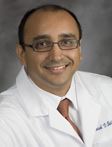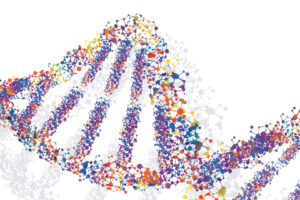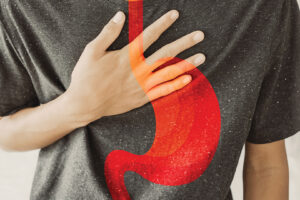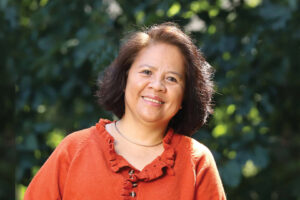About two years ago, I came to a profound realization that it was time for a change. I needed to make a rather dramatic transformation in terms of my lifestyle choices, nutritional decisions, fitness routines, and overall health – pretty much my entire physical and mental well-being. I was 41 years old, a husband, and a father of two with a strong family history of prostate cancer. I also happen to be a cancer doctor who treats and counsels others in the name of wellness and prevention. It was time to practice what I preach.
To others, I appeared fit and in control. But, I had high blood pressure, soaring cholesterol levels, and was fueled by an improper eating regimen. Compounding all of this, perhaps surprisingly for a doctor, I wasn’t visiting my own primary care physician. I decided then and there that I would take back my life and regain control, in a world where so many physical factors can be out of one’s control.
After all, my father and his two brothers were both diagnosed with prostate cancer while in their mid-50s. I have a genetic pre-disposition to cancer. Yet, truth be told, cancer didn’t fully motivate my life-changing actions. I did so because it was simply the right thing to do. Plus, my wife’s urging voice admittedly rang loudly in my head.
Fast forward to today. Not only have I done a complete about face and vow to continue on my path to better health, but it pleases me that, perhaps, I can provide some inspiration to my patients and others both in and out of the cancer community. While there’s still no known cure for cancer, you can reduce your risk by following my lead to simple and smart changes.
Take care of your body – it’s the only one you have
Research suggests that only five to ten percent of cancers are hereditary. The lifestyle choices we make, the foods we eat, our physical activity levels, and early detection and treatment all have a direct impact on overall cancer risk.
Let it be known that physicians, in general, tend to be the worst patients. Up until a few years ago, this was certainly true in my case. In my moment of realization, I found a primary care physician, made an appointment and promised to follow his recommendations with discipline. I implore you to visit your doctor on a regular basis for checkups and health screenings. Follow guidelines based on your age, family history and risk factors, and regularly self-monitor your bodies for any changes. I can’t stress enough the merits of early detection and prevention. Men and women who turn 50, for example, are at risk for developing colorectal cancer and should use a screening test and undergo a colonoscopy procedure. Women age 40 and older should have a mammogram every year, if there are other risk factors, your doctor may advise you to start younger.
It’s so easy to make excuses to not engage in regular physical fitness. Like so many, I used to claim I didn’t have time. But physical activity strengthens the body’s immune system, keeps the digestive system healthy, and maintains proper hormone levels. I joined the CentraState Fitness and Wellness Center and began going regularly three to four days per week at 5:30 am before the start of my work day. No matter how old you may be or the state of your physical situation, it’s so important to be active and limit sedentary habits. Get up off the couch and do what your body allows you to do. I tell even my elderly cancer patients who can’t exactly lift weights that they can just lift a book, climb some stairs or go for a long walk. It can be that basic. Doing anything is better than doing nothing.
In conjunction with regular exercise, maintaining a healthy body weight is one of the most important things you can do to reduce your risk of cancer. Aim to be at the lower end of the Body Mass Index (BMI). Since I began my journey, I’ve lost 10 pounds and a few waist sizes. But most importantly, I’ve reduced my percentage of body fat from 37% to 15%. Maintaining a healthy weight not only makes us feel better and less likely to develop cancer, but also less susceptible to other chronic diseases, such as type 2 diabetes and heart disease.
It’s so true – you are what you eat
In terms of my diet, I fully admit I was a disaster. I usually skipped breakfast and lunch, and ate whatever was on the kitchen table when I returned home exhausted late at night. Now, I eat three healthy meals each day. What you put into your body is just as important as how you take care of your body – and how much you intake is equally critical. It’s all about moderation. Lighter and leaner. When it comes to nutritional choices, here are a few guidelines:
- Eat a regular variety of vegetables, fruits, beans, whole grains and other plant-based foods. They contain high amounts of fiber and essential nutrients which strengthen your immune system’s ability to fight off cancerous cells.
- Cut back on sugary drinks, processed foods with high sugar levels, and salty foods. Drink a lot of water. Choosing healthy foods and drinks instead of those high in refined carbohydrates and added sugar and fat can help avoid weight gain, and thereby reduce your cancer risk.
- Limit red meats (beef, pork and lamb) and processed meats (ham, bacon, hot dogs or sausage). There’s nothing wrong with an occasional hamburger or hot dog, just don’t overdo it.
- If you choose to drink alcohol, limit your consumption. The risk of various types of cancer can increase with the amount of alcohol you drink.
- Protect your skin from the sun.
- And, of course, do not smoke or chew tobacco. More than two-thirds of all cancer deaths stem from tobacco product usage.
Take charge of your life today
It bears repeating that the choices I’ve adopted relative to leading a healthier lifestyle may or may not extend my life. I truly don’t know. Cancer remains one of life’s mysteries. But words cannot truly describe just how great I feel. My level of energy is the highest it’s ever been. My blood pressure is now normal and I’m off my cholesterol medication. I have taken control of what I can.
Awareness through education and early detection are the first and best steps in the prevention or better outcome for many cancers. Although making smarter and healthier lifestyle decisions can’t guarantee cancer prevention, it might help reduce your risk. Some simple changes can make a big difference. You can take charge of your life beginning today. The rewards will last a lifetime.
 Dr. Bhavesh Balar is a board-certified hematologist and oncologist on staff at CentraState Medical Center where he also serves as chairman of the hospital’s Cancer Committee. He is also a medical director at Regional Cancer Care Associates in New Jersey. Dr. Balar can be reached by calling 866-CENTRA7.
Dr. Bhavesh Balar is a board-certified hematologist and oncologist on staff at CentraState Medical Center where he also serves as chairman of the hospital’s Cancer Committee. He is also a medical director at Regional Cancer Care Associates in New Jersey. Dr. Balar can be reached by calling 866-CENTRA7.






